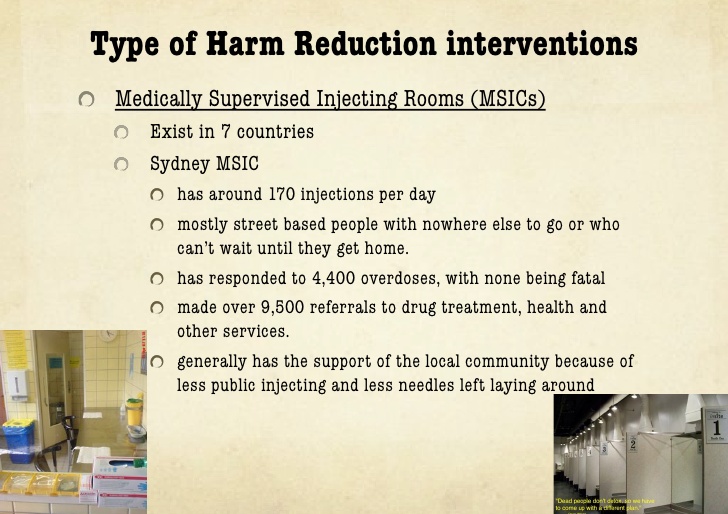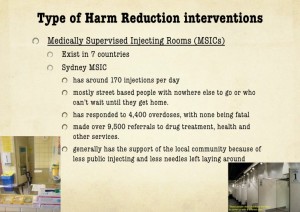By Jeremy Reynalds, Ph.D.
Founder and CEO
Joy Junction Inc.
It’s easy (for some) to condemn “harm reduction.”
So you don’t know what that is? It’s the giving of clean needles to drug addicts, and condoms to sex workers and others.
Like many evangelicals, I used to criticize harm reduction workers as promoting irresponsible sex and illegal drug use. The problem was, I had never bothered to talk with them.
Once I did, I found they’re not promoting random sex or drug use. They’re attempting to keep hurting people alive until they’re ready to seek the recovery they need to stay alive. Shouldn’t evangelicals be applauding that? You can’t preach the Gospel to a dead person.
There was a minor furor among some Christians a few years ago when a Christian nurse working in Canada offered a defense of harm reduction.
I lost a handful of Facebook friends at the time over an article I wrote in its defense, but hadn’t thought about it much since then until I saw a recent piece about Ithaca’s mayor who wants to let heroin users shoot up under medical supervision
The Washington Times reported that Mayor Svante Myrick, 28, says he’ll ask New York’s Health Department to declare Ithaca’s heroin problem a state health crisis so he can pursue efforts to establish a center where addicts can shoot drugs under the care of a nurse without risking arrest and while diminishing the odds of death.
This is his official plan. The executive summary reads in part, “Too often, our past approaches have failed to recognize that fundamentally, the community prevalence of health problems, such as problem drug use, and social problems, such as participation in the illegal drug economy, reflect deeper issues related
to social and economic opportunity and racial inequality.”
While harm reduction is only one part of this mayor’s four pronged plan against drug use, I wondered what some of our Joy Junction guests thought about hard reduction, so I had some of our staff do a quick unscientific survey.
Out of 19 people who responded, 11 were for the practice, seven were against and one was undecided.
One woman said she thinks harm reduction is a good thing, as it reduces the risks of spreading diseases and infections. “I don’t think it is contributing to drug or sex use.”
Another woman agreed, saying that harm reduction also stops unwanted pregnancies.
Someone else said that it’s far from the promotion of sex and drugs. “It is protecting the rest of the world from disease. ‘Kill them with Kindness.’”
Another individual said she also thinks it’s a good idea.
She added, “I shared needles with others and got Hep-C. Had I had clean needles it would have never happened. Giving condoms to sex workers will help stop the spread of diseases and unwanted pregnancies.”
Perhaps most surprising were the forceful statements of those shelter guests who disapprove of hard reduction.
One guy said, “I think that providing what is being called a harm reduction program is just promoting the sinful practices of the participants.”
A woman said that giving needles and condoms to addicts and prostitutes “gives the okay to do it.”
Another individual said that while she sees the “positive side” of harm reduction, it is still enabling them to keep up their “bad behavior.
She added, “Taking away consequences then there will be more users thinking it is OK … Education is the only true cure.”
Perhaps a more thoughtful response came from a woman who said that she’s okay with harm reduction “as long as there is a follow up or presentation with/ for the recipient to straighten up their lives and provide alternatives for the moment that presents itself.”
Of course, Facebook is always a good source for opinion, so I asked some of our Joy Junction Facebook fans what they thought.
We got plenty of comments.
Mike said the practice definitely won’t create new heroin users.
He added, “And it will ensure that existing users don’t have to resort to dirty needles that lead to BAD things for their peers, families and sexual partners. And lastly, there is no doubt that when they go into the facility to shoot up, they are in the ONE place equipped with the tools to help them actually make the decision to QUIT.”
There was a very thoughtful response from Angelina, who wrote that sometimes there is just no ending the addiction, and if the person isn’t ready for change, there is no way it can be forced.
She continued, “They can continue to use on the streets, sharing dirty needles and improperly entering their blood pathways, furthering endangering themselves and causing greater risk of transferring communicable disease or they can use a clean and sterile needle, under medical supervision, and ensure that it will be disposed of and not shared. They’re going to use regardless; this would help reduce the risk of harm to them and others. And, yes, this could potentially lead to a reduction in drug use, and maybe even elimination of it in some individuals.”
And while some anti-drug vaccines could be on the horizon, as one researcher said, “Interestingly, while an anti-cocaine or anti-heroin vaccine eliminates the drugs effects (both pleasant and unpleasant), that doesn’t by itself curb a user’s desire. The person still has to want to get clean … ”
In the meantime, hard reduction might just be the best we have. Isn’t it just as unconscionable not to help a sick, addicted hurting person stay alive as it is to ignore the plight of a hungry person?
Speaking specifically to evangelicals. Whether you choose to define a sex worker or someone who injects heroin as an addict, a sinful person or as both, shouldn’t we who say we have been forgiven so much by a loving God want to share that same love with those in need?
And if you don’t believe in harm reduction, what is the viable alternative?
For more information about harm reduction, visit here.



